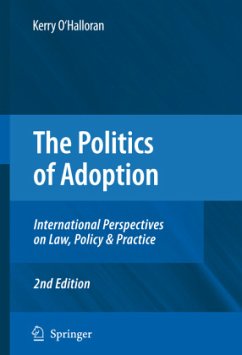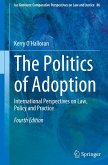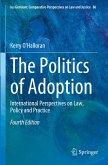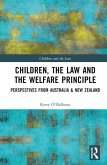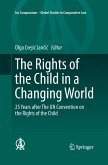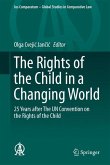Adoption has always had a political dimension. Its use to achieve political ends has been evident throughout history and in many different cultures. In Roman times, an emperor would adopt a successful general to 1 continue his rule. In Ireland, under the Brehon Laws, the reciprocal placements of 2 children between clans was an accepted means of cementing mutual allegiances. In Japan, the adoption of non-relatives was traditionally seen as a means of allying 3 with the fortunes of the ruling family. The willingness of governments to use adoption as a political strategy was apparent, for example, in Australia where it was used to 4 further the assimilation of indigenous people. It is now present in the phenomenon of intercountry adoption where the flow of children, particularly in the aftermath of war, is often politics by proxy. Adoption can be profoundly affected by politics, as demonstrated by the decision of the Chinese government to advocate 'one-child families' which resultedin very many Chinese girls being relinquished for adoption abroad as their parents exercised a preference for a male child. Again, as in Korea in the recent past, c- rently in some South American countries and in those states of eastern Europe newly emerged from under the blanket of totalitarianism, governments can and do facilitate an outward flow of children for reasons of economic and political 5 expediency.
"This is an excellent publication for those wanting to get an international perspective on the politics of adoption. It is authoritative and greatly informative." (Professor John Triseliotis)
"Kerry O'Halloran's Politics of Adoption provides a comprehensive and thoughtful overview of adoption law, both domestic and international, in the common law world. It is an invaluable resource not only for practitioners and scholars but for anyone interested in acquiring an in depth understanding of adoption in all its forms and complexity." (Barbara Bennett Woodhouse, David H. Levin Chair in Family Law, Director, Center on Children and Families, Fredric G. Levin College of Law, Co-Director, Institute for Child and Adolescent Research and Evaluation (ICARE), Gainesville, Florida)
"Kerry O'Halloran's Politics of Adoption provides a comprehensive and thoughtful overview of adoption law, both domestic and international, in the common law world. It is an invaluable resource not only for practitioners and scholars but for anyone interested in acquiring an in depth understanding of adoption in all its forms and complexity." (Barbara Bennett Woodhouse, David H. Levin Chair in Family Law, Director, Center on Children and Families, Fredric G. Levin College of Law, Co-Director, Institute for Child and Adolescent Research and Evaluation (ICARE), Gainesville, Florida)

